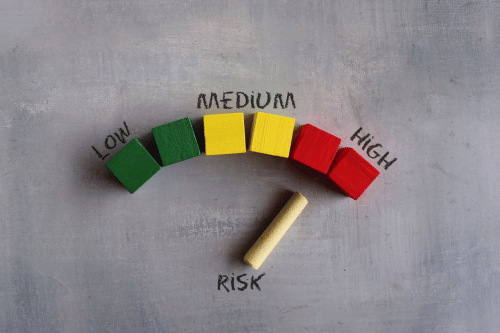Xanax and Weed: Understanding the Risks and Effects
The combination of Xanax and weed has become a growing concern, particularly for those struggling with anxiety, panic disorders, or mental health complications. Individually, each substance has its risks, but when mixed, the dangers are amplified, especially when considering the role of prescription drugs in polysubstance abuse.
Many people may not realize the severe consequences of using these two substances together. Additionally, the risks of mixing prescription medications, such as Xanax, with other substances like marijuana can lead to serious health complications. This article aims to delve into the effects of Xanax and weed, explore the potential dangers of mixing them, and highlight the importance of seeking professional help for addiction treatment.
What Is Xanax and How Does It Work?

Xanax, also known by its generic name alprazolam, is a prescription medication used to treat anxiety disorders and panic disorders. Part of the benzodiazepine family, Xanax works by affecting the brain and central nervous system to produce a calming effect. It enhances the effects of a natural chemical in the brain called GABA, which helps reduce feelings of anxiety and panic. When used as prescribed by a healthcare provider, Xanax can be effective in managing these conditions. However, misuse of this medication can lead to Xanax addiction.
As a central nervous system depressant, Xanax can cause severe drowsiness, dizziness, and slowed breathing when taken in larger doses or combined with other substances. This is especially dangerous when individuals mix Xanax with other depressants, such as alcohol or marijuana. The risks are even greater when Xanax is combined with other prescription medications, highlighting the serious health risks associated with polysubstance abuse.
The Effects of Weed
Weed, also known as marijuana, comes from the cannabis plant and contains the psychoactive compound THC. This substance is commonly used for both medical and recreational purposes. While many people use weed to relax, it can also have a range of side effects, particularly when smoked in excess or combined with other drugs like Xanax.
The most common effects of weed include altered cognitive function, impaired motor skills, and changes in mood. Some users experience feelings of euphoria, while others may become anxious or paranoid. Regular weed use can also affect mental health, increasing the risk of developing or worsening conditions like anxiety and depression. When mixed with Xanax, these mental health complications can be intensified, leading to more severe outcomes.
What Happens When You Mix Xanax and Weed?
Mixing Xanax and weed can have unpredictable and dangerous effects on both the body and mind. Since both substances are central nervous system depressants, using them together increases the risk of extreme sedation, respiratory depression, and impaired motor coordination. People who combine these substances may experience dizziness, slurred speech, confusion, and impaired judgment. In severe cases, the combination can lead to life-threatening consequences, including overdose or even death.
Combining prescription drugs like Xanax with other substances such as weed can significantly heighten the risks. For individuals already dealing with mental health issues, mixing Xanax and weed can worsen symptoms. Both drugs have the potential to increase feelings of anxiety and depression, making it harder to manage mental health disorders. The combined effects can also lead to a higher risk of developing a substance use disorder, particularly when used regularly or in high doses.
Polysubstance Abuse and Its Dangers
The use of multiple substances at the same time, including prescription drugs, is referred to as polysubstance abuse, and it poses a significant risk to both physical and mental health. When individuals engage in mixing substances, such as Xanax and weed, the chances of developing a dependence on both drugs increase. Over time, the body becomes accustomed to the presence of both substances, making it difficult to stop using them without experiencing withdrawal symptoms.
Common withdrawal symptoms from Xanax include severe anxiety, tremors, and irritability, while marijuana withdrawal can lead to insomnia, irritability, and mood swings. The combination of withdrawal from both substances can make it even harder for individuals to break free from the cycle of addiction.
The Impact on Mental Health
Long-term use of Xanax and weed can have a profound impact on mental health. Both substances are known to affect cognitive function, making it harder to think clearly, focus, and make decisions. Prolonged use can also lead to mental health complications, such as increased anxiety, depression, and memory problems.
Individuals who use Xanax and weed to self-medicate for mental health issues may find that their symptoms only worsen over time. Instead of treating the underlying causes of their anxiety or depression, they become reliant on the substances to cope. This cycle of substance use can make it even more challenging to address mental health concerns in a healthy and effective way.
The Physical Risks of Mixing Xanax and Weed

In addition to the mental health effects, mixing Xanax and weed can have serious physical consequences. Both drugs slow down the body’s central nervous system, which controls vital functions like breathing and heart rate. When used together, Xanax and weed can cause severe drowsiness, impaired motor coordination, and respiratory depression. In some cases, the combination can lead to life-threatening consequences, particularly when taken in higher doses.
The risk of accidents and injuries also increases when mixing Xanax and weed. Impaired motor skills and slowed reaction times can make it dangerous to drive or operate machinery while under the influence of these substances. Additionally, the combination can lead to confusion and slurred speech, further impairing an individual’s ability to function normally.
Treatment Options for Xanax and Weed Addiction
If you or someone you know is struggling with substance abuse involving Xanax and weed, it’s essential to seek professional help. Treatment for polysubstance abuse typically involves a combination of medical detox, therapy, and long-term support to help individuals break free from the cycle of addiction.
At Revival Mental Health, we offer comprehensive treatment programs designed to address both substance use and mental health disorders. Our team of addiction specialists provides personalized care, ensuring that each individual receives the support they need to recover fully.
Types of Treatment Available
There are several types of treatment programs available for individuals struggling with addiction to Xanax and weed. These include:
Medical Detox
Detoxification is the first step in the recovery process. It involves safely removing Xanax and weed from the body under medical supervision. This process can help manage withdrawal symptoms and ensure that individuals remain stable during the early stages of recovery.
Inpatient Treatment
Inpatient or residential treatment provides 24-hour care in a structured environment. This type of treatment is ideal for individuals with severe addictions or those who require a higher level of support.
Outpatient Treatment
Outpatient programs offer flexibility for individuals who cannot commit to a full-time residential program. These programs provide therapy and support while allowing individuals to continue living at home.
Individual and Group Therapy
Both individual therapy and group therapy are essential components of addiction treatment. Therapy helps individuals explore the underlying causes of their substance use and develop coping strategies to maintain sobriety.
Mental Health Treatment
For those dealing with both substance use and mental health disorders, dual diagnosis treatment is essential. At Revival Mental Health, we provide integrated care that addresses both addiction and mental health issues simultaneously.
Why Seek Professional Help?

Attempting to quit Xanax and weed on your own can be dangerous, especially if you have developed a dependence on both substances. Without medical supervision, withdrawal symptoms can be severe and, in some cases, life-threatening. Seeking professional treatment at a reputable treatment center like Revival Mental Health ensures that you receive the care and support necessary for a successful recovery.
Our experienced team understands the challenges of polysubstance abuse and provides a range of evidence-based treatment options tailored to each individual’s unique needs. We accept most major insurance providers and offer a free insurance benefits check to help individuals determine their coverage for addiction treatment.
Conclusion: Protect Your Health and Future
Mixing Xanax and weed is a dangerous combination that can have serious consequences for your mental and physical health. From severe drowsiness and impaired motor coordination to life-threatening complications like respiratory failure, the risks of combining these two drugs are not worth it. If you or a loved one is struggling with Xanax addiction or polysubstance abuse, don’t wait—seek professional help at Revival Mental Health today. Our comprehensive addiction treatment programs are designed to support individuals on their journey to recovery, offering a safe, supportive environment to heal and rebuild.
Take the first step toward a healthier, substance-free life. Confidential help is just a phone call away.





